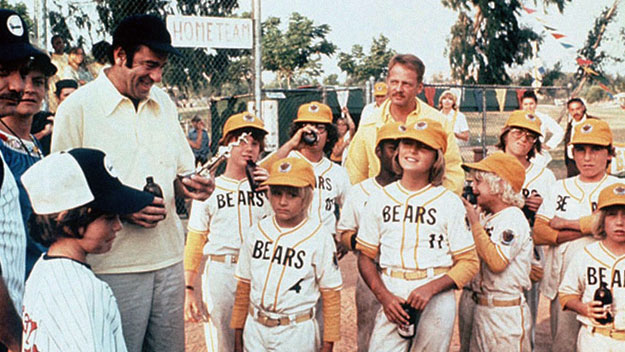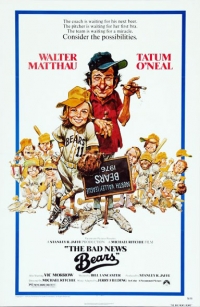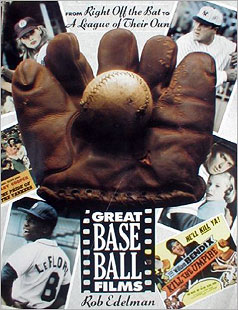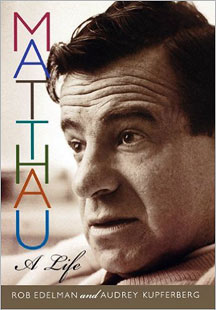QUEBEC
- Dollard-des-Ormeaux — United’s Dollard Twin Drive-In*** (4)
- Montreal — United’s Claremont*** (11)
- Montreal — United’s Le Parisien 5-plex*** (4)
RHODE ISLAND
- Lincoln — General Cinema Corporation’s Lincoln Mall 4-plex* (11)
- Warwick — General Cinema Corporation’s Warwick Mall Twin* (10)
SASKATCHEWAN
- Regina — Famous Players’ Capitol Twin*** (5)
- Saskatoon — Famous Players’ Midtown Twin*** (13)
SOUTH CAROLINA
- Columbia — Irvin-Fuller’s Jefferson Square Ultravision*** (10)
- Greenville — Stewart & Everett’s Wade Hampton Mall*** (6)
- North Charleston — ABC Southeastern’s Terrace*** (8)
SOUTH DAKOTA
- Rapid City — Commonwealth’s Northgate Twin* (5)
TENNESSEE
- Goodlettsville — Martin’s Rivergate Mall Twin*** (10)
- Hixson — Martin’s Northgate Triplex***
- Jackson — Malco’s Paramount*** (6)
- Knoxville — ABC Southeastern’s Tennessee*** (8)
- Memphis — General Cinema Corporation’s Plaza Twin***
- Memphis — General Cinema Corporation’s Raleigh Springs Mall Twin***
- Memphis — General Cinema Corporation’s Whitehaven Twin***
- Nashville — Martin’s Martin*** (10)
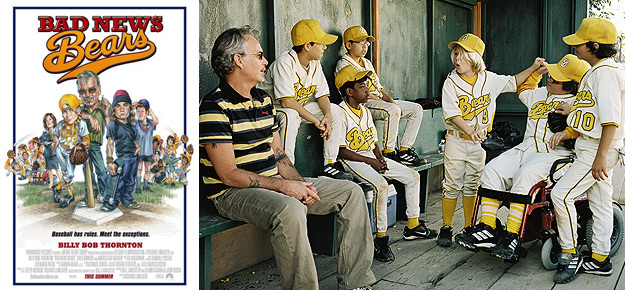
TEXAS
- Amarillo — ABC Interstate’s Western Square Twin*** (7)
- Arlington — General Cinema Corporation’s Six Flags Mall Twin*** (11)
- Austin — Mann’s Fox Twin*** (12)
- Beaumont — General Cinema Corporation’s Gateway Twin***
- Brownsville — ABC Interstate’s North Park Plaza Twin*** (4)
- Corpus Christi — Mann’s National Twin*** (11)
- Dallas — ABC Interstate’s Medallion*** (11)
- El Paso — ABC Interstate’s Morningside Mall Twin*** (11)
- Fort Worth — General Cinema Corporation’s Seminary South Twin***
- Galveston — General Cinema Corporation’s Galvez Plaza Triplex*** (7)
- Harlingen — ABC Interstate’s Morgan Plaza Twin*** (4)
- Houston — ABC Interstate’s Woodlake Triplex***
- Houston — General Cinema Corporation’s Gulfgate Twin***
- Houston — General Cinema Corporation’s Meyerland Twin***
- Houston — General Cinema Corporation’s Northline Twin***
- Lubbock — Mann’s Fox 4-plex*** (12)
- McAllen — ABC Interstate’s Cinema Twin***
- Odessa — Hodge’s Grandview*** (5)
- Port Arthur — Gulf States’ Park Plaza Twin*** (4)
- San Antonio — ABC Interstate’s Wonder*** (17) <theater twinned mid run>
- San Antonio — Santikos’ Century South 6-plex*** (11)
- Texas City — Tradewinds Twin*** (4)
- Tyler — Guy-Con’s Gaslite 4-plex*** (12)
- Waco — ABC Interstate’s 25th Street*** (6)
- Wichita Falls — American Multi-Cinema’s Sikes Senter 6-plex*** (12)
UTAH
- Salt Lake City — Mann’s Villa* (11)
- South Ogden — Country Club* (9)
VERMONT
No theaters in Vermont played The Bad News Bears during Release Wave #1
VIRGINIA
- Charlottesville — ABC Southeastern’s Terrace Twin*** (5)
- Danville — ABC Southeastern’s Riverside Twin*** (5)
- Fredericksburg — Rechir/Cohen’s Virginians Twin* (5)
- Hampton — General Cinema Corporation’s Coliseum Mall Twin*** (11)
- Norfolk — General Cinema Corporation’s JANAF Plaza*** (10)
- Richmond — Neighborhood’s Willow Lawn*** (12)
- Richmond — Trans-Lux’s Twin*** (7)
- Roanoke — Consolidated’s Valley 4-plex*** (7)
- Springfield — General Cinema Corporation’s Springfield Mall 4-plex* (12)
- Vienna — Neighborhood’s Tysons* (12)
WASHINGTON
- Bellevue — Sterling Recreation Organization’s John Danz* (6)
- Everett — General Cinema Corporation’s Everett Mall Triplex* (9)
- Lynnwood — Sterling Recreation Organization’s Lynn Twin* (7)
- Seattle — Sterling Recreation Organization’s Lake City* (6)
- Spokane — Sterling Recreation Organization’s Lincoln Heights Twin* (5)
- Tukwila — Sterling Recreation Organization’s Lewis & Clark Triplex* (14)
WEST VIRGINIA
- Charleston — State*** (14)
- Morgantown — Cinemette’s Warner Triplex***
WISCONSIN
- Appleton — Marcus’ Marc Twin*** (9)
- Brookfield — General Cinema Corporation’s Brookfield Square Twin*** (12)
- Eau Claire — Plitt’s State*** (3)
- Fond du Lac — General Cinema Corporation’s Forest Mall Twin*** (4)
- Green Bay — Marcus’ Marc Twin*** (5)
- Janesville — United Artists’ Janesville Mall Triplex*** (6)
- Kenosha — United Artists’ Twin*** (5)
- La Crosse — Marcus’ Rivoli*** (2)
- Madison — General Cinema Corporation’s East Towne Mall Twin*** (7)
- Madison — Madison 20th Century’s Hilldale*** (7)
- Milwaukee — Marcus’ Skyway Triplex*** (10)
- Milwaukee — RKO Stanley-Warner’s Capitol Court*** (12)
- Racine — Marcus’ Marc Twin*** (9)
- Sheboygan — Marcus’ Marc Twin*** (5)
WYOMING
- Casper — Commonwealth’s Beverly Twin* (4)
YUKON
No theaters in Yukon played The Bad News Bears during Release Wave #1
THE INTERVIEW
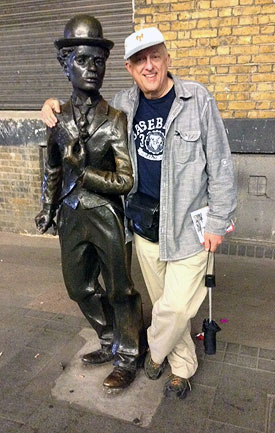 Rob Edelman is the author of Great Baseball Films: From ‘Right Off the Bat’ to ‘A League of Their Own’ (Citadel, 1994) and Baseball on the Web (MIS Technology, 1998). He teaches film history at the State University of New York at Albany, and is a film commentator on WAMC Northeast Public Radio, a contributing editor of Leonard Maltin’s Movie Guide (published annually), a frequent contributor to John Thorn’s Base Ball: A Journey of the Early Game, and was the keynote speaker at this year’s NINE Spring Training Conference in Arizona. His essay on early baseball films appears on the Reel Baseball: Baseball Films from the Silent Era, 1899-1926 DVD. As well, he was an interviewee for supplemental material included on the director’s cut DVD and Blu-ray release of The Natural. His other books include Matthau: A Life (Taylor, 2002) and Meet the Mertzes: The Life Stories of I Love Lucy’s Other Couple (Renaissance, 1999), both of which he co-authored with his wife, Audrey Kupferberg.
Rob Edelman is the author of Great Baseball Films: From ‘Right Off the Bat’ to ‘A League of Their Own’ (Citadel, 1994) and Baseball on the Web (MIS Technology, 1998). He teaches film history at the State University of New York at Albany, and is a film commentator on WAMC Northeast Public Radio, a contributing editor of Leonard Maltin’s Movie Guide (published annually), a frequent contributor to John Thorn’s Base Ball: A Journey of the Early Game, and was the keynote speaker at this year’s NINE Spring Training Conference in Arizona. His essay on early baseball films appears on the Reel Baseball: Baseball Films from the Silent Era, 1899-1926 DVD. As well, he was an interviewee for supplemental material included on the director’s cut DVD and Blu-ray release of The Natural. His other books include Matthau: A Life (Taylor, 2002) and Meet the Mertzes: The Life Stories of I Love Lucy’s Other Couple (Renaissance, 1999), both of which he co-authored with his wife, Audrey Kupferberg.
Michael Coate (The Digital Bits): In what way is The Bad News Bears worthy of celebration on its 40th anniversary?
Rob Edelman: Unlike so many films made across the decades that spotlight pre-teenagers, The Bad News Bears is much more than entertaining escapism. It offers a pointed reminder that the sole purpose of Little League is for its participants to have fun. All the kids should be allowed to participate, not just those who are the most aggressive or athletically gifted. The bottom line here is that Little League is for the kids, and not their parents or coaches. Plus, the fact that the Bears do not cop the championship is what makes the film so appealing. Sometimes, the very best films do not feature cookie-cutter happy-ever-after endings.
Today, in our ever-competitive culture, it seems that too many ball-playing youngsters are pressured to win at all costs. This alone makes the points-of-view expressed in The Bad News Bears as relevant as ever.
Coate: What compelled you to write your baseball and Walter Matthau books?
Edelman: Anybody who knows me will recognize that, beyond my feelings for Audrey, my wife, the two great passions in my life are baseball and film. So to get to do a book on baseball films was a special treat—not to mention all the articles I've published on both subjects. But it certainly has been a privilege and an honor to be able to combine baseball and film in my writings and teaching.
But as I say, I do not always combine the two. This past fall, I published a piece on Hilda Chester, who was a famous Brooklyn Dodgers fan-atic back in the 1940s and early 50s. At the time, Hilda was within her domain a major celebrity; however, while researching, I discovered that she ended up living in obscurity and for many years was buried in an unmarked grave. Fascinating stuff! (The piece may be found in The Baseball Research Journal, a publication of The Society for American Baseball Research [SABR]).
As for the Matthau book: His background was especially intriguing on a deeply personal level. He grew up on the Lower East Side during the 1920s and 30s and, while researching, I felt as if he easily could have been my uncle. He was a real character, and it was a special pleasure to explore his life and times.
Coate: When did you first see The Bad News Bears?
Edelman: I saw it—and liked it—when it first came out. However, when I began researching my baseball book, my goal was to revisit all the baseball films I'd already seen—as well as the non-baseball films with baseball sequences or references. And there are plenty of these….
Coate: What did casting a “movie star” type of actor in Walter Matthau bring to the project?
Edelman: Matthau was more than a movie star. He—like his good buddy Jack Lemmon—was a consummate actor. I would say that Matthau's casting—he was a major name and box-office commodity—added a certain cache and marketability to the project. But as I say, Matthau was a multi-talent—and he offers a crackerjack performance as Morris Buttermaker.
Coate: Where do you think The Bad News Bears ranks among sports movies?
Edelman: Difficult question. There are so many sports films, and I could discuss them for hours. But I would say that The Bad News Bears easily is one of the better baseball films—and sports films.
Coate: Where do you think The Bad News Bears ranks among director Michael Ritchie’s body of work?
Edelman: Near the top. I would add that his earliest films—Downhill Racer, The Candidate, and Smile, along with The Bad News Bears—are his best. And these titles are like The Bad News Bears in that they offer trenchant commentary on their respective subjects.
While researching Walter Matthau, I had occasion to interview Ritchie by telephone. At the end of our conversation, I was able to tell him how much I admired these early films. Afterward, I felt great that I was able to do so. And then, a couple months later, I was shocked to learn that Ritchie had died of cancer. When I interviewed him, I had no idea that he was afflicted with the disease, but I felt good that I was able to complement him. Perhaps, for a fleeting moment, it made him smile. And I also was lucky to have been able to interview him. He gave me some excellent material and quotes for the book—and there is a moral to this story: Do not put off for tomorrow what you can do today, because tomorrow may be too late.
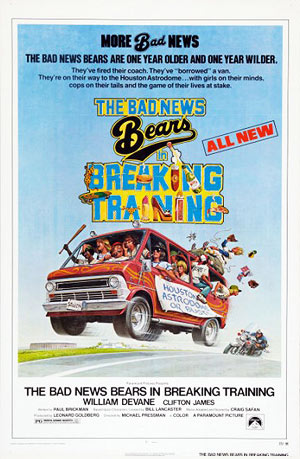
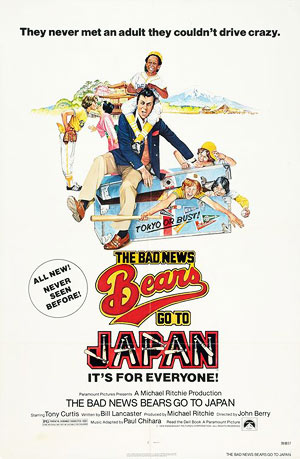
Coate: Compare and contrast the original The Bad News Bears with its sequels and remake.
Edelman: There is no comparison. [And] I found the remake to be crass and dispiriting. When it was released, I reviewed it on WAMC Northeast Public Radio, where I offer film commentary. Here is [what I said]:
The Bad News Bears, the latest in the line of endless Hollywood remakes, is a movie for our time—and this is not intended as a compliment.
The original The Bad News Bears was released almost three decades ago, back in 1976. Both films essentially tell the same story. The primary character is a broken-down ex-baseball player who in a movie like The Lost Weekend or Days of Wine and Roses would be depicted as a pathetic alcoholic rather than a comical one. The scenario charts his redemption as he coaches a bunch of ragtag Little Leaguers.
The original Bad News Bears was more than just a throwaway comedy. It was an immensely entertaining film, but it also exuded intelligence. As the story plays itself out, the coach recruits a twelve-year-old girl with a whale of a pitching arm. Her mere presence helps make the Bears a competitive team and, in so doing, The Bad News Bears shows how a girl can play ball as well as a boy—which was controversial stuff back in 1976.
Even more tellingly, the older film offers a reminder that the purpose of Little League is to have fun. All the kids should be allowed to participate, not just the athletically gifted. Little League is, after all, for the kids, and not their parents or coaches. This point is succinctly expressed during the championship game, when a rival coach cruelly berates his pitcher, who also happens to be his son. The adult even smacks the child when he does not throw the ball exactly as instructed.
And finally, in the original film, the Bears are flawed—but they are human. They triumph not because they win the game but because they try, they have spirit, they take no guff from those born with silver baseball bats in their hands.
However, in this new version, a 12-year-old girl who might be the Pedro Martinez of Little League does rescue the team. But each and every other female character is either a Playboy Playmate-like bimbo or a harsh, humorless stereotype of a type-A 21st-century businesswoman. And in the film, there even is product placement for Hooters.
In this new version, the obnoxious rival coach is more of a pompous jerk, a character to be laughed at rather than an outright villain whose actions are jarring and harmful to the children in his charge.
Finally, in no uncertain terms, this new version of The Bad News Bears subverts its predecessor by expressing the view that, while moral victories are okay, it is far far better to win. Because that is the American way….
What is so dispiriting here is that thousands if not millions of children likely will see the new Bad News Bears and be exposed to its twisted sense of values.
Coate: What is the legacy of The Bad News Bears?
Edelman: [Re-emphasizing a point made in my response to your first question, I think the legacy of The Bad News Bears is that] the points-of-view expressed in [it remain] as relevant as ever.
Coate: Thank you, Rob, for participating and sharing your thoughts about The Bad News Bears on the occasion of its 40th anniversary.
---END---
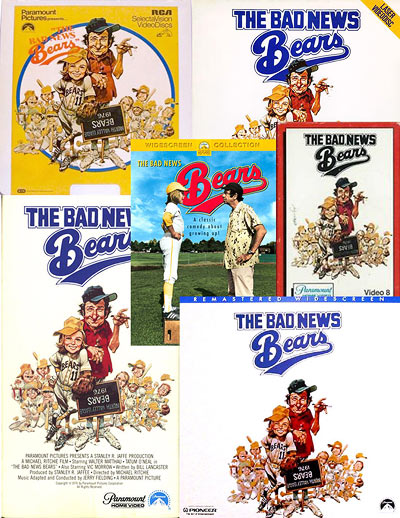
SPECIAL THANKS
Jerry Alexander, Al Alvarez, Laura Baas, Don Beelik, Raymond Caple, Bill Cronauer, Nick DiMaggio, Rob Edelman, Bill Gabel, Stephen Gailey, Ralph Grassi, Wendy Hall, John Hazelton, Bill Huelbig, Thomas Hutchens, Stephanie Johnson, Sarah Kenyon, Bill Kretzel, Joanne Lammers, Ronald A. Lee, Mark Lensenmayer, Stan Malone, Adam Martin, Deborah May, Andrew Miller, Alexis Neapolitan, Tim O’Neill, Melissa Scroggins, Desirée Sharland, Daniel Sheahan, Tim Spindle, Cliff Stephenson, John Stewart, Jack Tegel, Mike Thomason, Tim Van Beek, Kurt Wahlner, Joel Weide, Stacy Wierenga, Vince Young, Beth Zak-Cohen, and to all of the librarians who helped with the research for this project, and to the Academy of Motion Picture Arts and Sciences’ Margaret Herrick Library and Fairbanks Center for Motion Picture Study.
SOURCES/REFERENCES
Primary references for this project were promotional material published in hundreds of daily newspapers archived digitally and/or on microfilm plus numerous articles published in film industry trade publications Boxoffice, The Hollywood Reporter, and Variety. Additional references for selected information included Cosmopolitan, Newsweek, Playboy, and Time.
SELECTED IMAGES
Copyright 1976 Paramount Pictures Corporation
All figures and data included in this article pertain to the United States and Canada except where stated otherwise.
IN MEMORIAM
- Jerry Fielding (Music), 1922-1980
- Vic Morrow (“Roy Turner”), 1929-1982
- Ben Piazza (“Bob Whitewood”), 1933-1991
- Bill Lancaster (Screenwriter), 1947-1997
- Walter Matthau (“Coach Morris Buttermaker”), 1920-2000
- John A. Alonzo (Director of Photography), 1934-2001
- Michael Ritchie (Director), 1938-2001
- John Wilkinson (Re-recording Mixer), 1920-2002
- Joe Brooks (“Umpire”), 1923-2007
- Polly Platt (Production Designer), 1939-2011
- Gene Cantamessa (Sound Mixer), 1931-2011
- Michael Coate
Michael Coate can be reached at: This email address is being protected from spambots. You need JavaScript enabled to view it.
